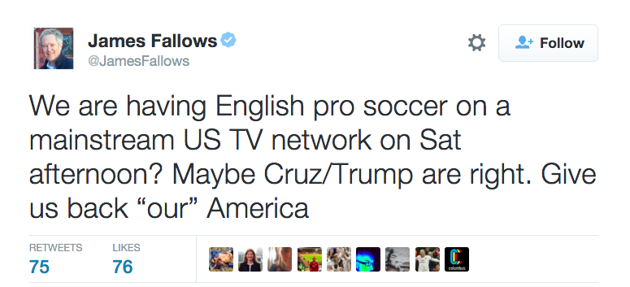So I wouldn't be so sure I knew "How Actual Smart People Talk About Themselves." That's the title of a piece at The Atlantic by James Fallows, who's implicitly talking about himself, implicitly assuring us that he is a smart man who knows the smart people. That is, he is one of the elite who got snookered in the last election.
But the people Fallows talks about in his article are scientists and computer people. Wilde was a brilliant humorous writer, famous, especially, for short, hilarious sentences. Trump is much more like Wilde than like Bill Gates and that guy who won the Nobel Prize in medicine when he was in his 40s.
Here's Fallows:
Virtually none of them (need to) say it. There are a few prominent exceptions, of talented people who annoyingly go out of their way to announce that fact. Muhammed Ali is the charming extreme exception illustrating the rule: he said he was The Greatest, and was. Most greats don’t need to say so....Once you admit there's an exception, you've got to say Trump is not like the exception. But Trump is like Muhammad Ali. He's making his reputation in large part by speaking entertainingly to the public. And, like Oscar Wilde's declaration of genius, Ali's proclamation of greatness felt like exuberant, extroverted fun to those who loved him. What Trump is doing feels like that too. If you hate Trump, you'll balk at that, but you need to know that there were many people who reacted negatively to Ali's "I am the greatest." I remember it very well, because I loved "I am the greatest" at the time, and I remember why I loved it. It was liberating. You could throw off your inhibition and proclaim your greatness.




